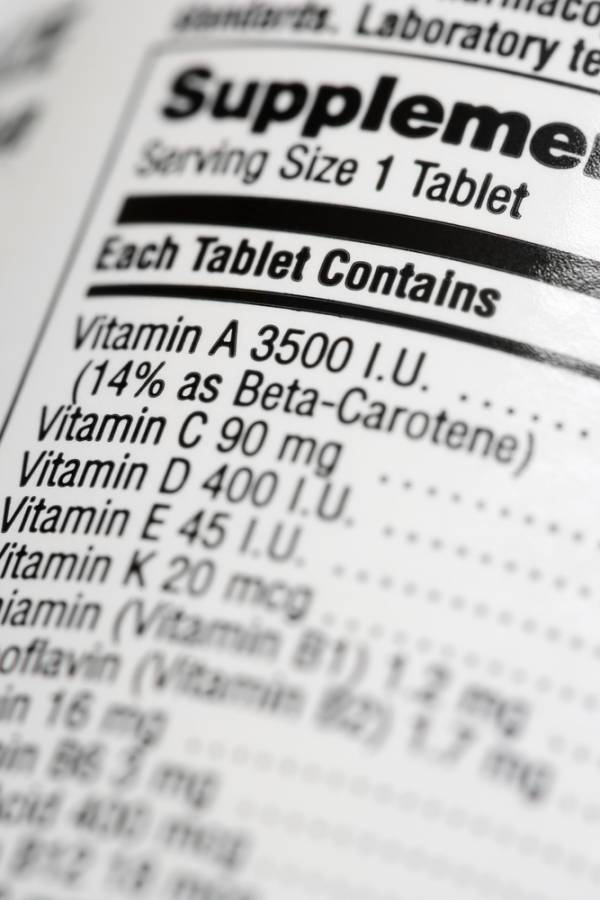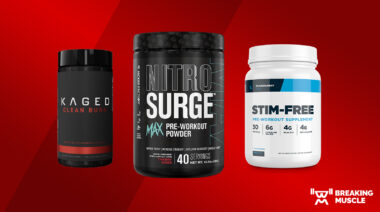The vitamin and supplement industry has been around for a long time (who knows, maybe General Patton ingested a multi-vitamin before he crossed the Rhine!). It is also not going away. Because the supplement industry is here to stay, you need to vigilant and knowledgeable enough to sort out the good from the bad. Ironically, your health depends on it. Your savings account is also at stake.
Consumer Reports magazine recently offered a heads-up on the downside of vitamins and supplements. It’s pretty solid stuff. Not only an eye-opener, but it’s a wake-up call for all the magic potion-seekers out there hoping for miracles. With information obtained from interviews with experts, published research, and the Food and Drug Administration’s (FDA) collection of consumer complaints, they offered these caveats:
1. Warning Label Issues
The FDA doesn’t require warning labels on supplements except for those that contain iron. For those that do offer warnings, the labels can be inconsistent. Some only offer general warnings for product use if pregnant or nursing, or about possible unnamed drug interactions. Less than half of the supplements warned against their use if a medical condition was present or if possible adverse reactions could occur.
Because of the lack of consistency in warning labels, make sure your physician or pharmacist knows what supplements and prescription drugs you are taking or thinking of taking.
2. Vitamin and Mineral Overdosing
Large doses of the fat-soluble vitamins A, D, E, and K can create issues, and even normal doses may interfere with certain prescription medications. Adverse effects can also occur with too much calcium or iron.
Here is a good example of how one can overdose on calcium without knowing it: An older woman concerned about osteoporosis might eat Whole Grain Total cereal for breakfast (approximately 1,000 milligrams of calcium per serving), with a half-cup of skim milk (150 milligrams of calcium), and take a calcium supplement (500 milligrams) in addition to a One-A-Day Menopause Formula multivitamin (300 milligrams). The upper limit of calcium for this woman is 2,000 milligrams, so she’d only be 50 milligrams short of the daily maximum with more meals yet to be consumed that day.
My advice is to check supplement and food labels, and add up your total daily exposure to everything you consume. If your physician suggests you need more of a specific nutrient that cannot be obtained from your diet (or sun exposure, in the case of vitamin D), then opt for a single-ingredient dose.
3. Supplements Are Risky & Might Actually Be Medications
Between 2007 and mid-April of 2012, the FDA received more than six thousand reports of serious issues associated with dietary supplements, vitamins, and herbs. More than ten thousand issues, some multiple, were reported. Here is a partial list:
- 115 deaths.
- More than 2,100 hospitalizations.
- 1,000 serious injuries or illnesses.
- 900 emergency-room visits.
- Approximately 4,000 other serious medical events.
Existing laws make it very difficult for the FDA to ban anything once distributors slap that microscopic disclaimer on the product. To date, the FDA has banned only the ingredient ephedrine alkaloids. Even though it took decades to do this, ephedra-based weight-loss products were implicated in thousands of issues, including deaths.
Since 2008, the FDA has recalled more than 400 dietary products that contained prescription drugs. Most are marketed for weight loss (Meridia) and sexual enhancement (Viagra and Cialis). Some bodybuilding supplements were found to actually contain synthetic steroids. Ironically, those who opt for supplements over drugs to avoid negative-effects and interactions could actually be experiencing them.

4. Supplements Cannot Cure Major Diseases
As I previously mentioned, provided a supplement manufacturer places a disclaimer on their product stating it cannot diagnose, cure, mitigate, treat, or prevent a disease, they are free and clear (the microscopic disclaimers emblazoned on products usually require reading glasses or a magnifying glass to read it). To date, no supplement has been proven to cure any major disease.
Although the FDA warns against making claims about curing disease, some companies ignore it. Again, the disclaimer clearly states it, but that does not deter some unscrupulous people. In example, a warning was given to a company called BioAnue Laboratories out of Rochelle, Georgia because the following testimonials were found on other websites: “Formula CX will reverse wasting disease” and “Bovine cartilage stops tumor growth.” Both claims were completely unproven.
Many people will believe anything provided it looks legitimate. That is why the supplement manufacturers take the risk of hyping their products by either toeing the line or even crossing it illegally, hoping they will go unnoticed. The truth is the manufacturers are attempting to out-run the watchdog FDA. Some are doing it and some are being restrained.
Make sure to read part two for three more things you need to know before buying any supplements.
Photos courtesy of Shutterstock.






